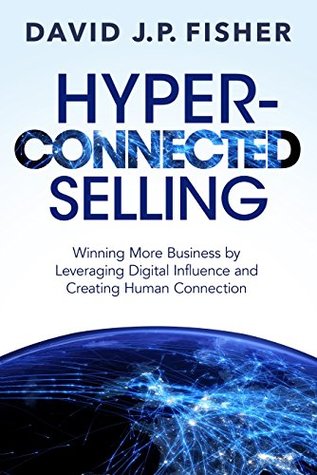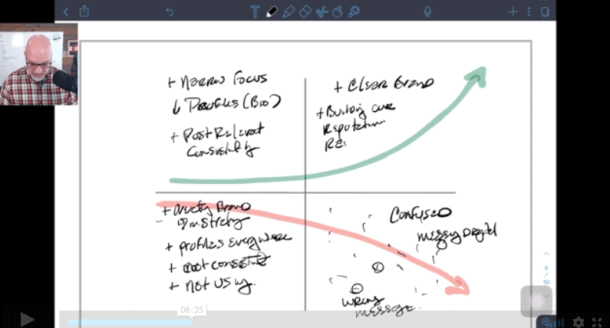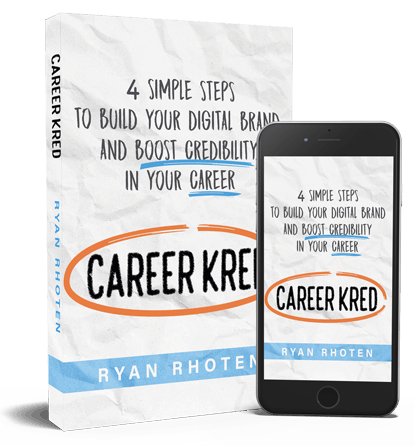“The easier you can make it for somebody to remember what you do, the more likely they are to remember why you do what you do and what a good referral is for you.”
Selling in today's hyper-connected world with David JP Fisher
David JP Fisher, a.k.a. D-Fish is the president of Rock Star Consulting. He is the author of eight books, seven from his Networking in the 21st Century series of books. His latest book is called Hyper-connected Selling which is focused on how you can win more business by leveraging digital influence and creating human connections.
[smart_track_player url=”http://traffic.libsyn.com/thebrandnewyoushow/David_Fisher_FINAL.mp3″ social_linkedin=”true” social_pinterest=”true” social_email=”true” ]
Hyper-Connected Selling
 Despite the name, Hyper-Connected Selling is not just for folks holding the title of a salesperson. The book is aimed more at understanding the selling process in our modern world.
Despite the name, Hyper-Connected Selling is not just for folks holding the title of a salesperson. The book is aimed more at understanding the selling process in our modern world.
David believes that we all sell, whether you're a business owner, an entrepreneur, or a solo service provider, what you really are is a salesperson. You're always trying to find or create opportunities, whether internal to an organization or externally in a sales capacity.
David defines hyper-connect selling as a world where we have almost instant access to information and people. Because of our smartphones, we can go look up anything at any time on Google, and we can connect with hundreds to thousands of other individuals quickly.
This instant access to information and people has fundamentally changed the way sales are made.
How the internet affects selling today
There's no question the internet has changed the sales process. It used to be the salesperson held all of the cards in the sales cycle. As a potential customer, you had to go to the salesperson for information, which gave them an advantage in the process.
However, now that information is available to us, twenty-four, seven, the advantage the salesperson used to have has shifted to the consumer. As a result, we've had to redefine the sales process.
What used to be a very transactional role has evolved into one where the potential buyer has a level playing field, and it's up to the salesperson to build a relationship and trust, by helping prospective clients and customers make better, faster, more effective decisions.
Old school linear sales process
Twenty years ago, we didn't have the same access to information, and we had this thing in the sales process called a gatekeeper. Gatekeepers essentially controlled the sales process, which made it very linear.
You'd go from step A to step B to step C, and so on. You had to work with and through a single person, maybe the receptionist or their answering machine. To be successful in sales back then, you had to learn to get past the gatekeeper.
Getting past the gatekeeper typically required brute force such as making as many calls as possible. It became a numbers game. You knew you needed to be persistent and that rejection was not going to stop you.
Now that we've made this transition to everybody having access to information, gatekeepers and the liner sales process are falling by the wayside.
This shift is forcing salespeople to become guides in the sales process, which means focusing more building relationships with potential customers before they ever know they are a potential customer.
Become a Sales Sherpa
David and I talked at length about this concept of being a Sales Sherpa. To become one requires you to move away from how most sales professionals are traditionally trained. He believes this mindset starts by planting a flag and developing your personal brand.
Specifically, David believes we need to tell people, “this is what I'm all about. Here's my expertise. Here's how I help people using social channels, digital channels, offline channels.”
This way, people know when they need something specific that you offer, they say, “oh gosh, I need x, Y, Z” and you are the first person they think about.
A Sales Sherpa positions themselves in the minds of their customers, as the person who can solve their specific problem. Very similar to the way Sherpa's help climbers ascend mountains.
Sherpas have been up to the mountain top before. They know where the pitfalls are, and which shortcuts to take. The goal of building your personal brand in this way is the same, to position yourself as a knowledgeable person who can help potential customers up the mountain.
Too much choice requires a Guide
It used to be, the salesperson's role was to show up with a brochure for a product or service because there was no other place a prospect could get the information. Today, information is almost a commodity.
Because information is so readily available, we as potential consumers, often make the mistake of thinking that more data equals better decision making.
Unfortunately for us, science has shown the more information we have when making decisions, causes our brains will “shut down,” which serves to make our decision making worse. This is where you, as a Sales Sherpa, comes into play.
To become a guide, today's salespeople must adopt the mindset of becoming specific in your area expertise, which requires you to move away from being a generalist and instead become a specialist.
Make the transition from Generalist to Specialist
A generalist is someone who attempts to be everything to everybody. While this may have worked in the old linear sales process, today because we have access to so much information people are more likely to look for a specialist who can help them sift through all of the available information.
It's no surprise that our hyper-connected world is becoming very niche. David believes the more you specialize, the easier it is for people to identify with what you do and the easier it will be for you to make a living doing something you love.
David cautions, however, that to get there, you must first clearly define what you do and what you sell. While this may sound easy, it can be very challenging.
As an example, one of my Leveraged Message Roadmap clients recently told me she knew who her ideal clients were, but she struggled to explain how she helped in a way potential clients could quickly grasp.
She knew this lack of clarity was costing her clients.
This idea of being a specialist and becoming more niche in whom you serve and how you help will not only help you find clarity, but it will allow you to stand out in a sea of noise.
The Sales Matrix
Instead of following a liner sales process, David believes the sales process today follows what he refers to as the sales matrix.
It used to be that you could have a sales conversation with one person. You'd establish rapport, identify the problem, and offer a solution.
Today, however, within the sales matrix after you have a conversation with a potential client, they will then go look you up on their phone, search for you on social media, find any public reviews, ping their friends, their contacts, get feedback, and then make a decision.
The sales matrix encompasses everything about your business from in-person impressions and conversations to your digital footprint.
I don't know about you, but anytime I buy something online that I'm not familiar with the company, you just put in the product and reviews and see what comes up.
Mastering today's sales matrix requires an understanding that you are now working in an environment where there are a lot of sources of information and influence and as the salesperson, you have to manage them all throughout the entire process.
Because of this, David stresses that all of the closing tips, tricks, and hacks, or the fancy ways of trying to ask for the business that might've worked in the past, don't work anymore.
Social Media's role in the Sales Matrix
Social media, when used correctly, is the new method of networking. This is not to say that the good old fashion face-to-face meetings are no longer valid, but only to point out that social media can help drive your sales matrix.
Social media can be used to create brand awareness and also answer, in advance, questions that your ideal prospects are asking.
Imagine if after a call or conversation with a potential client, they start to do all of the things mentioned previously and what they find aligns to tell them you are the person who can help.
Social media combined with building a powerful personal brand and specializing vs. being a generalist is how you capture attention, so your ideal clients say, “I get it.”
Beer, Beats, and Business Podcast
Not to be confused with Bears, Beets, and Battlestar Galactica, David's podcast is called Beers, Beats, and Business.
The Beer, Beats, and Business podcast was inspired by David's love for networking. Some of the best conversations he's ever had came from sitting with someone and having a cup of coffee or having a happy hour beer at the end of the workday.
On the podcast, David tries to replicate those conversations. During his last season, the third, David and his guests talked a lot about the new world of connection.
His guests are from a range of industries such as the tech space, the digital marketing space, artists, and even actors and writers. If you get a chance, I recommend giving it a listen.
Best ways to reach David
Website: https://davidjpfisher.com/
LinkedIn: https://www.linkedin.com/in/iamdfish/
Twitter: https://twitter.com/dfishrockstar
Podcast: https://beerbeatsandbusiness.com/
Become a Sales Sherpa: https://beasalessherpa.com/






